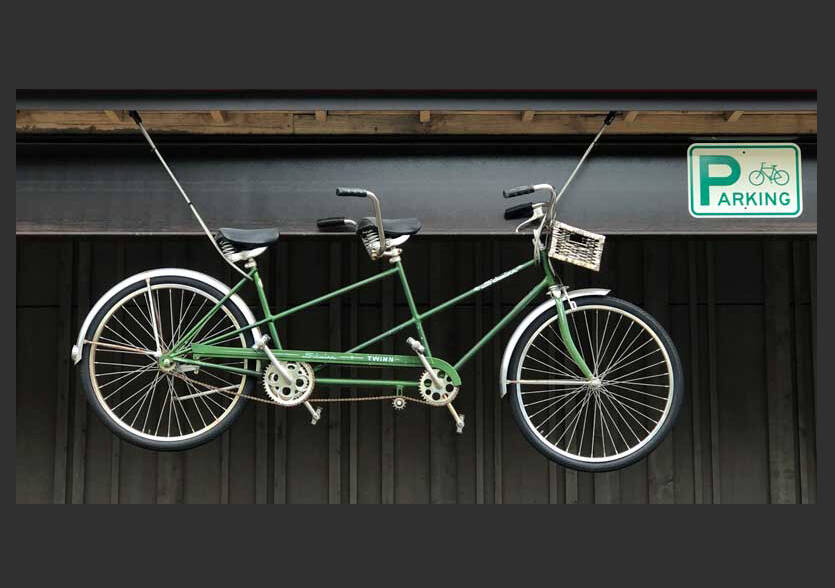By Morf Morford, Tacoma Daily Index
It always amazes me to see how much any given city invests in parking. In terms of property or budget, parking dominates every urban landscape. I’m always intrigued by how different cities deal with parking/cars/traffic/transit in completely different ways.
Park it
Parking in any city is the ultimate distillation of those three enduring keystones of real estate – location, location, location.
Parking is one of those non-negotiables – you need it where and when you need it.
And, in most cases, we grudgingly agree to pay any price that might be required.
And then, just as immediately, we don’t need it.
Cars, perhaps like every tool and technology, make great servants, but terrible masters.
Too much parking in Seattle?
If you’ve been on the streets or neighborhoods of Seattle recently, you notice that there are cars everywhere.
Seattle, perhaps like every city, has an abundance of cars – and presumably, somewhere, a driver, or, even better, more than one person who legally, if not pragmatically, is associated with that car.
You’d never guess it but, Seattle has 1.6 million parking spots.
That’s more than two spots for every person in the city. And more than five parking spots for every household in the city.
The total value of those spots, factoring in land costs and assuming each spot in a garage costs $50,000 to build: nearly $36 billion.
This is according to a study reported on by the Seattle Times way back in 2018.
So where is a parking place when I need it?
The problem with parking, like many of our problems, from housing to supply chain issues, is that parking not a math problem.
It really doesn’t matter how many parking places Seattle (or any city) has; what matters is where they are, when they are available and, to a lesser degree, how much they cost.
Parking places are their own working definition of perishable. They are of supreme, dominating importance at the point of need. And then, just as suddenly, irrelevant.
If only we could think of another use for all those parking places
Surely the entrepreneurs among us could come up with a temporary/pop-up use for at least some of these spaces.
Some would be individual, but some could be wide expanse or even multi-levels.
The possibilities are literally endless – from night markets to live theater or movie nights, those spaces beg for fuller use.
Meet me in Paris
I’ve always thought parking/traffic problems would be more manageable in smaller towns and cities.
And maybe they are.
Or at least were.
But in the major cities of the world, the car-centered problems are so great that equally great solutions – or at least remediations – are required.
Several European cities, including Rome, Milan, and Madrid, have established what they call limited traffic zones, or ZTL (zone à trafic limité).
These new “tranquil zones” are not designed to ban vehicles completely.
Short-term hotel guests, delivery services, and disabled persons will still be allowed to drive through those areas.
Those policies will, however, reduce total traffic by around 55%.
To put it mildly, local residents, taxis, those with disabilities and first-responders would find it far easier to navigate a neighborhood with less traffic.
And, of course, it would be quieter and far safer for children. And pets.
What do we want?
It’s just a matter of civic will.
Each city and neighborhood needs to take a long look at the question of what cities and neighborhoods are for.
Should we dedicate entire cities and neighborhoods to cars? Or to people?
As I mentioned, various cities have tried different things; New York’s Fire Island is a no-traffic zone where people get around by foot, bicycle or golf carts.
In Zermatt, Switzerland, locals, and visitors use foot and horse-drawn carriages.
Fes el Bali of Morocco, La Cumbrecita of Argentina, Venice of Italy, and Halibut Cove of Alaska, have banned cars for years.
September 18
On Sunday 18th September 2022, the city of Paris will host a car-free day which will empty the entire city of cars. The city will be closed to car traffic and dedicated exclusively to pedestrians.
For once, and maybe more than once, Parisians and visitors can roam the city and enjoy a multitude of free events in peace and quiet. You can see the details here.
If Paris can do it, any of us can.
***
You’ve heard of gluten-free or pet-free or even hands-free, why not car-free?
In those fringe, or even central neighborhoods, or in those off-hours, or when we need a neighborhood party for any reason, we need to remember that our cities and neighborhoods are for people – not vehicles.





